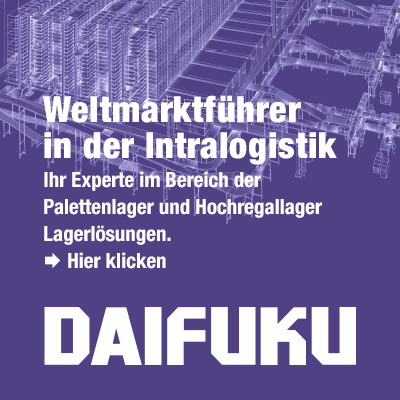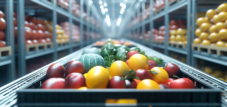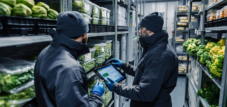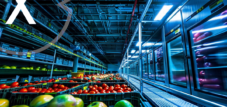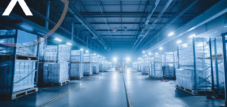Fresh logistics and refrigerated logistics worldwide: Insufficient refrigerated storage contributes significantly to the loss of perishable goods worldwide
Language selection 📢
Published on: December 16, 2024 / update from: December 18, 2024 - Author: Konrad Wolfenstein
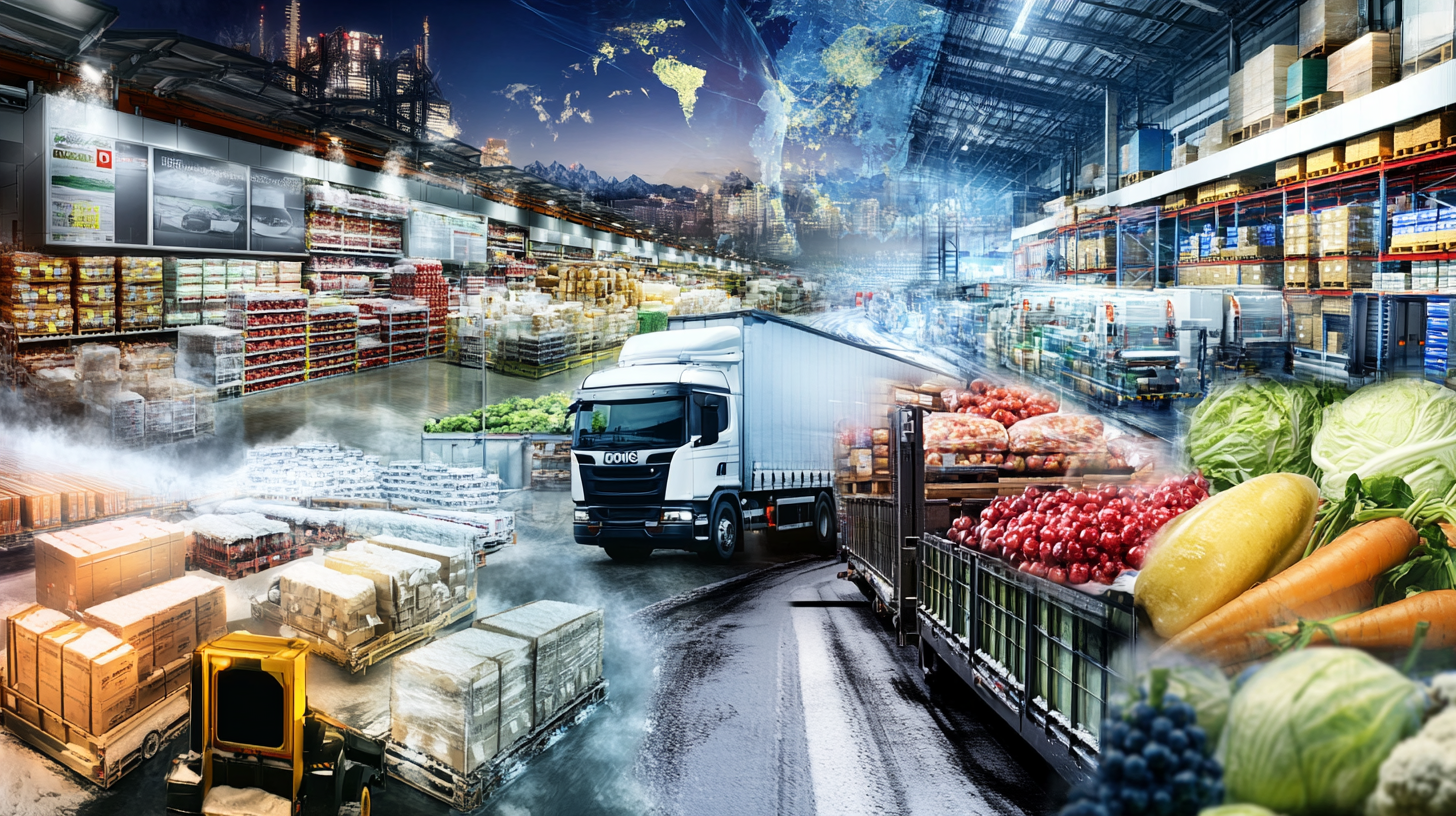
Fresh logistics and refrigerated logistics worldwide: Insufficient refrigerated storage contributes significantly to the loss of perishable goods globally - Image: Xpert.Digital
❄️🍎🌱 Fresh and chilled food: A global challenge
🌍❄️ Introduction: The central role of the cold chain
Fresh and chilled foods are among the most sensitive goods on the global market. To ensure their quality, safety and durability, a functioning cold chain is of great importance. A cold chain includes all steps from harvesting or production through processing, transportation, storage to the point of sale and finally to the end consumer. If this chain is interrupted, for example due to inadequate cooling options, fluctuating temperatures or a lack of infrastructure, this leads to significant losses of perishable goods. This problem is not just an economic issue, but has far-reaching consequences for food security, the environment and social development. According to current estimates, around 14% of food worldwide is lost between harvest and retail because cold chains do not function adequately. The annual losses add up to around 526 million tonnes, a figure that clearly shows the immense need for action.
🌟 Causes: Why cold chains fail
The reasons for these grievances are diverse. Many countries lack basic infrastructure, such as constantly available power sources, to reliably operate cold storage facilities or transport vehicles with refrigeration units. The qualifications of personnel who carefully handle sensitive products and monitor compliance with temperature-controlled storage processes are often not sufficiently guaranteed. Logistical bottlenecks, long transport routes, poor road conditions, a lack of refrigerated containers and a lack of understanding of the importance of seamless cold chains exacerbate the problem. Particularly hard hit are developing countries where promising agricultural crops fail to reach their potential because fruit, vegetables, fish, meat or dairy products spoil on the way to market before even reaching retail outlets. This not only results in financial losses for producers, but also a reduction in the food supply available to the population.
🌍 Impact: A global problem
The effects are clearly noticeable globally: If up to 40% of perishable goods are lost in developing countries due to a lack of refrigeration options, this has long-term consequences for the nutritional basis of millions of people. In Africa, for example, many countries are faced with exactly this problem. Small farmers, already struggling with limited resources and volatile market prices, are losing valuable produce before it can even be put up for sale. When perishable goods such as vegetables, dairy products or meat cannot be refrigerated, quality deteriorates rapidly and potential revenue streams disappear. The result is not only economic damage, but also an obstacle to the development of the local agricultural sector and thus to the rural value chain. In the long term, economic growth falls short of its potential and the nutritional situation worsens because less fresh, nutritious food is available.
🛠️ Focus regions: practical examples
- Nigeria: Significant amounts of food are lost every year due to a lack of cold chain logistics. The reasons include a lack of power supply, a lack of storage and cooling options and insufficient training.
- India: Between 20 and 50% of perishable food is wasted due to inadequate infrastructure - with enormous economic consequences.
- China: Despite large production volumes, the transport of perishable goods often fails due to a lack of refrigeration options.
- Latin America: In countries like Colombia, there is often a lack of suitable storage and transport conditions after the harvest.
🌱 The meaning: sustainability and efficiency
The consequences of these global losses are far-reaching. On the one hand, they mean great economic damage for producers, traders and ultimately also consumers. Rising food costs because fewer goods reach the counter are hitting poorer sections of the population particularly hard. On the other hand, the losses also have a negative impact on the environment. Every ton of food wasted not only represents wasted resources - water, energy, land - but also increases emissions of climate-damaging greenhouse gases, as spoiled food often ends up in the trash and releases methane during the rotting process, a gas that is significantly more harmful to the climate than CO₂.
🌟 Solutions: Ways out of the cold chain crisis
To address these challenges, investments in infrastructure, technology, training and knowledge transfer are essential. Many approaches aim to give rural regions the tools they need to better protect their crops. The expansion of warehouses and cold storage facilities, the implementation of modern refrigerated logistics, the provision of mobile refrigerated containers for transport and training for farmers, traders and logistics staff are crucial steps.
Technological advances such as modern sensors that monitor the temperature of goods in real time and new cooling technologies using natural refrigerants help minimize losses and improve the environmental footprint. In addition, intelligent packaging that shows the degree of ripeness of food could represent a further step towards sustainability.
More about it here:
🌍 Strengthen cold chains worldwide
In the long term, it can be said that a stable and efficient cold chain is much more than a technical challenge. It is a crucial factor in strengthening food security, making better use of global food production, promoting economic prosperity, especially in rural regions, and reducing the ecological footprint of the agricultural and food sector.
The world's population is growing, and with it the demands for a stable supply of fresh, nutritious food are increasing. A sustainable food supply cannot be achieved by increasing agricultural yields alone. Reducing losses also plays a crucial role. The aim is to make better use of the potential of existing resources.
🔑 Together for a better future
This shows the immense importance of functioning cold chains: They are an important building block in reducing global food waste, an important key to meeting the increasing need for safe and high-quality food, and ultimately an indispensable contribution to improving the nutritional situation worldwide .
The problems and solutions presented make it clear that there is no simple patent recipe. The challenges must be viewed holistically: In addition to technical infrastructure, stable political frameworks, investments in research and development and economic incentives are needed to make the development of efficient cold chains more attractive.
Only through joint efforts and a global rethink will it be possible to minimize the unnecessary loss of perishable goods. 🌿💡
📣 Similar topics
- 🥶 The Importance of the Cold Chain: A Key to Global Food Security
- 🌍 Cold chains in developing countries: challenges and solutions
- 🚛 From harvest to consumer: Why a seamless cold chain is crucial
- ❄️ How technology can revolutionize cold chain logistics
- 📉 Food losses worldwide: Why a lack of refrigeration costs billions
- ⚠️ Cold chain interrupted: The economic, social and ecological consequences
- 🇳🇬 Case study Nigeria: Reasons for high food losses and possible measures
- 🍎 Europe's food waste: Even highly developed regions are affected
- 🌱 Sustainable cold chains: A path to less waste and more efficiency
- 🎯 Global collaboration to reduce food supply losses
#️⃣ Hashtags: #cold chain #food losses #sustainability #food security #technology
Xpert partner in warehouse planning and construction

Xpert.Plus warehouse optimization - high-bay warehouses such as pallet warehouses consulting and planning
We are there for you - advice - planning - implementation - project management
☑️ SME support in strategy, consulting, planning and implementation
☑️ Creation or realignment of the digital strategy and digitalization
☑️ Expansion and optimization of international sales processes
☑️ Global & Digital B2B trading platforms
☑️ Pioneer Business Development
I would be happy to serve as your personal advisor.
You can contact me by filling out the contact form below or simply call me on +49 89 89 674 804 (Munich) .
I'm looking forward to our joint project.
Xpert.Digital - Konrad Wolfenstein
Xpert.Digital is a hub for industry with a focus on digitalization, mechanical engineering, logistics/intralogistics and photovoltaics.
With our 360° business development solution, we support well-known companies from new business to after sales.
Market intelligence, smarketing, marketing automation, content development, PR, mail campaigns, personalized social media and lead nurturing are part of our digital tools.
You can find out more at: www.xpert.digital - www.xpert.solar - www.xpert.plus



